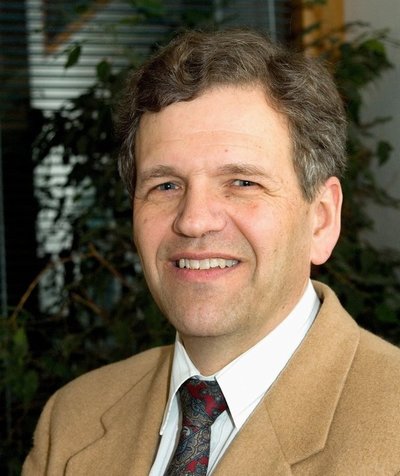March 16, 2006
Michigan biomedical engineer Matthew O’Donnell to lead UW engineering
Matthew O’Donnell, chair of the Biomedical Engineering Department at the University of Michigan and a researcher who explores imaging technologies in biomedicine, has been named new dean of the University of Washington College of Engineering and first holder of the Frank and Julie Jungers Endowed Deanship in Engineering.
The appointment, announced by Provost Phyllis Wise, is effective Sept. 1, subject to the approval of the Board of Regents at their next meeting.
“Attracting Matt O’Donnell to lead the college in the 21st century is a watershed moment in the history of engineering at the university,” said Wise. “Matt is one of the leading visionary engineering educators who understands the changing landscape in engineering and how important it is to the future competitiveness of America in the global economy and what contributions engineering can make to improving the quality of life of people around the world. We are very fortunate to be able to bring him to the northwest and the UW.”
UW President Mark A. Emmert said O’Donnell is an excellent choice to lead the college at a time when engineering as a discipline is rapidly expanding in scope.
“This is a time for the university to stake out strategic investments in areas where we can truly make a difference, and the future of the whole field of engineering is one of them,” Emmert said. “More and more fields within engineering are becoming more interdisciplinary and are developing important collaborations with other areas of science. The horizon is very bright, and at the University of Washington it just got brighter. Matt O’Donnell is just the right leader at this critical time for the university to expand its programs and its capacity and, to borrow a phrase, re-engineer engineering. We’re very excited about the future and Matt O’Donnell.”
O’Donnell said he is eager to take the helm at UW Engineering.
“This is a once in a lifetime opportunity,” O’Donnell said. “The College of Engineering at The University of Washington has made tremendous progress in the last decade and is rapidly moving into the top tier of engineering colleges. With the strong support of President Mark Emmert, Provost Phyllis Wise, and the extraordinary faculty, students, and staff in the college, the UW is ready to make the next major step forward. I’m excited to help the UW become one of the truly premier engineering schools in the country.”
A physicist by training, O’Donnell is known among colleagues for his ability as a scientist-engineer to work across disciplines, his keen professional drive, and his engaging manner. He earned his doctorate at Notre Dame in 1976. After graduation, he worked first as a graduate research and teaching fellow at Notre Dame, then as a senior research associate in physics and a research instructor in medicine at Washington University in St. Louis, exploring the application of ultrasonics to medicine and non-destructive testing. Later, he took a post at Yale University as a research fellow in electrical engineering.
In 1980, O’Donnell moved to the private sector as a research and development physicist for General Electric Co. in Schenectady, N.Y. He joined the University of Michigan faculty in 1990 as a professor of computer science and electrical engineering. In 1998, he was named the Jerry W. and Carol L. Levin Professor of Engineering. In 1999, he became chair of Michigan’s Biomedical Engineering Department. He holds 50 patents and has authored or co-authored more than 200 publications. His research prowess is balanced with talent in the classroom — he won several engineering teaching awards at Michigan.
O’Donnell’s annual salary will be $304,000.
The UW College of Engineering is an internationally recognized leader in cutting edge engineering research and education, composed of 10 departments — many nationally ranked — and numerous centers. The college employs approximately 200 faculty members who attract more than $70 million each year in federal grants and contracts, and serves approximately 5,000 pre-engineering, undergraduate and graduate students.
###



